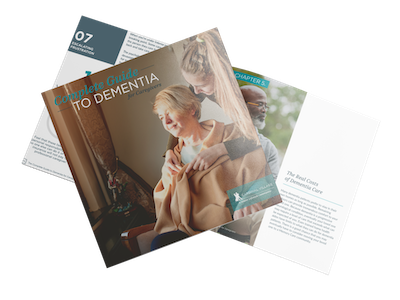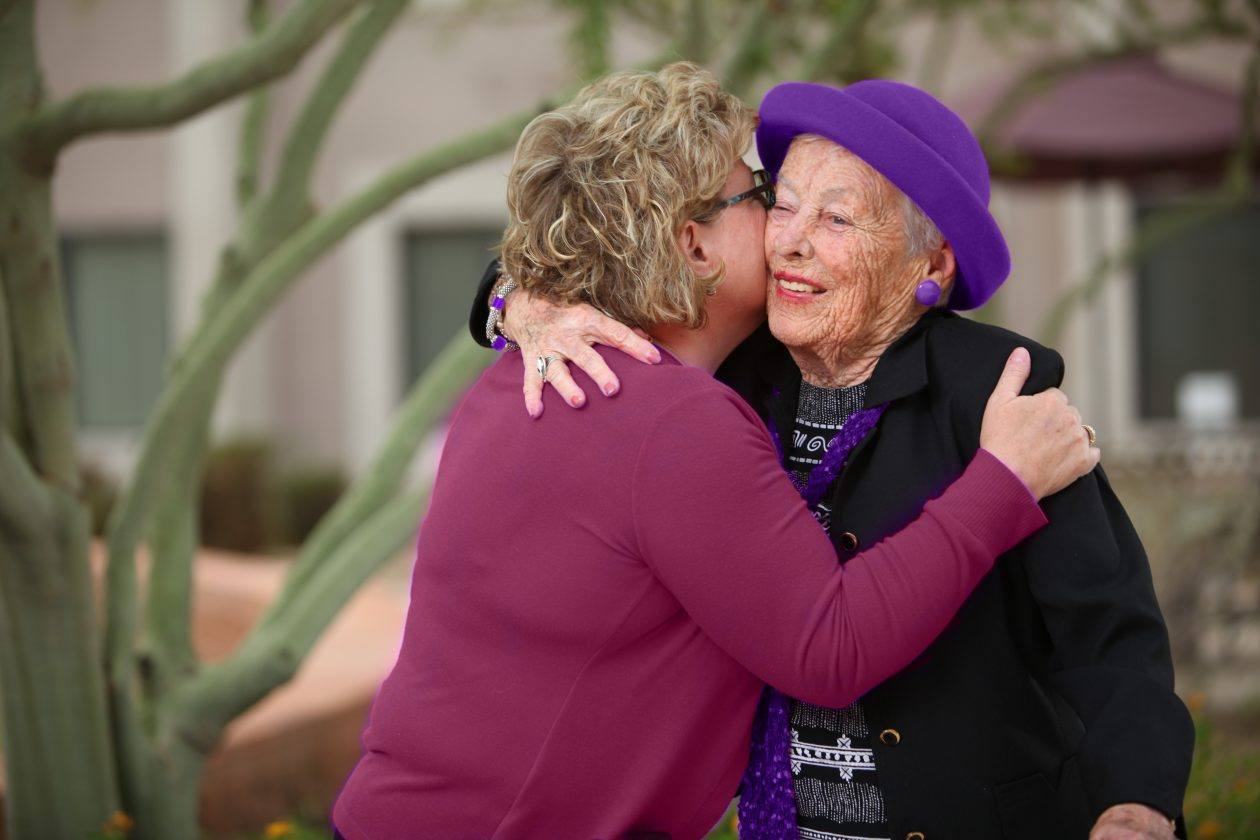As baby boomers continue to age, the number of seniors with Alzheimer’s disease continues to grow. According to the Alzheimer’s Association, about 5.8 million Americans are experiencing the disease. By 2050, the number is expected to grow to 13.8 million.
In fact, some groups are being hit harder than others.
- One in 10 people ages 65 and older has Alzheimer’s
- Women account for almost two-thirds of American Alzheimer’s cases
- African-Americans are about twice as likely to have Alzheimer’s
- Hispanics are about 1.5 times as likely to have Alzheimer’s
Dementia is the sixth leading cause of death in America, killing more people than breast cancer and prostate cancer combined. The Alzheimer’s Association says that every 65 seconds, someone in the United States develops the disease.
Senior Lifestyle has developed award-winning programs and care to help cope with the effects of the disease. Senior Lifestyle’s memory care and Alzheimer’s care specialists work directly with staff, residents, and their families to ensure residents receive the comprehensive care and attention they deserve.
Find out more about Alzheimer’s warning signs, stages, symptoms and what to do next.
What Alzheimer’s Disease Is and Isn’t
Alzheimer’s disease is a progressive disorder causing brain cells to waste away and die. According to the Mayo Clinic, it is the most common cause of dementia, which is a continuous decline in the ability to think, along with impacting behavioral and social skills. This decline disrupts a person’s ability to function independently. Alzheimer’s disease accounts for 60% to 80% of dementia cases.
Alzheimer’s is not, however, a normal part of aging. The greatest known risk factor is increasing age, but Alzheimer’s is not just a disease of old age. It’s estimated that 200,000 Americans under 65 have early-onset Alzheimer’s disease.
The disease generally progresses in stages, from mild to severe symptoms.
Aging brings with it some cognitive changes. Forgetting names, misplacing keys and other everyday annoyances are common, but not all of these changes point to Alzheimer’s. Here’s a look at typical age-related changes and how they relate to signs of Alzheimer’s, according to alz.org.

Stages and Symptoms of Alzheimer’s
Detecting the progression of Alzheimer’s can be challenging because the disease affects everyone differently. There is also an overlap between the stages of Alzheimer’s disease. Generally, experts such as the Alzheimer’s Association divide Alzheimer’s into three stages: mild stage, moderate stage, and severe stage.
Mild or Early Stage
The mild or early stage of Alzheimer’s related dementia can be easy to miss because it is gradual. This stage generally lasts 2 to 4 years, and symptoms may be mistakenly dismissed as a normal part of aging.
At this stage, a person may function independently, may still drive and work, and may take part in social activities. However, this person may be aware of their own increasing memory failures.
Friends and family may begin to notice some difficulties. If medical help is sought out at this stage, doctors may detect problems in memory or concentration.
According to alz.org, common symptoms include:
- Trouble remembering the right word or name
- Difficulty remembering names after being introduced to new people
- Challenges performing tasks at work or in social settings
- Forgetting material that has just been read
- Misplacing or losing valuable objects
- Increasing difficulty with planning or organizing

Download The Complete Guide to Dementia for Caregivers
Taking care of a loved one with dementia can be more than challenging. Read our eBook, “The Complete Guide to Dementia for Caregivers” which offers everything you need to know about caring for your loved one.
Download the Guide
Moderate or Middle Stage
As Alzheimer’s progresses to the middle or moderate stage, symptoms of dementia become clearer. A person may have greater difficulty performing routine tasks but may still remember significant details about their life.
At this stage, an Alzheimer’s patient may confuse words, get frustrated or angry, or act in unexpected ways, such as refusing basic hygiene. Damage to nerve cells in the brain can make it difficult to express thoughts and perform routine tasks.
The moderate stage of Alzheimer’s is typically the longest and can last for years. As the disease progresses, the Alzheimer’s patient requires a greater level of care.
At this point, symptoms will be noticeable to others and may include:
- Forgetfulness of both current events and personal history
- Increased moodiness or feeling withdrawn, especially in social or challenging situations
- Being unable to recall details, such as addresses or telephone numbers
- Confusion about the location or the current date
- Difficulty choosing the proper clothing for the season or occasion
- Possible trouble controlling bladder and bowels
- Changes in sleep patterns
- Increased risk of wandering and becoming lost
- Personality and behavioral changes or compulsive, repetitive behavior
Severe or Late Stage
The late or severe stage of dementia is most difficult for the family, as the individual now is nearly totally dependent on care and is otherwise inactive. Memory disturbances are serious, and the physical signs and symptoms become more obvious.
People with late-stage Alzheimer’s typically cannot respond to their environment, carry on a conversation or, eventually, control their own movement. Significant personality changes can be expected. These people usually need extensive help with daily activities.
According to alzheimers.net, this severe decline is characterized by:
- Confusion or lack of awareness of the environment and surroundings
- Inability to recognize all except the closest relatives and friends
- Inability to swallow
- Loss of the ability to communicate
- Loss of physical abilities such as sitting and walking
- Increase in infections (such as pneumonia)
- Loss of ability to control movements
- Loss of bowel and bladder control
- Major personality changes and potential behavior problems
- The need for assistance with basic daily activities
- Wandering
This decline can increase to the point where constant professional supervision is required. In this last stretch, patients are nearing death because of the terminal nature of Alzheimer’s disease.
How to Get Help for Alzheimer’s
According to the Mayo Clinic, a number of treatable conditions can result in memory loss or other dementia symptoms. Those concerned about memory or other thinking skills should talk to their doctor for a thorough assessment and diagnosis. If there is concern about a family member or friend, Mayo encourages people to discuss their concerns and ask about going together to a doctor’s appointment.
Current Alzheimer’s treatments cannot prevent or cure Alzheimer’s or stop it from progressing, but they can temporarily slow the worsening of dementia symptoms and improve quality of life for those with Alzheimer’s and their caregivers.
Research into Alzheimer’s continues. Today, there is a worldwide effort underway to find better ways to treat the disease, delay its onset and prevent it from developing.
According to the World Health Organization, the principal goals for dementia care are:
- An early diagnosis to promote early and optimal management
- Detecting and treating challenging symptoms
- Identifying and treating physical illness
- Optimizing physical health, cognition, activity, and well-being
- Providing information and long-term support to caregivers
By recognizing Alzheimer’s symptoms and identifying Alzheimer’s stages, you or your loved ones can start memory care treatment that can temporarily slow signs of the disease and improve the quality of life for those afflicted and for their families.

